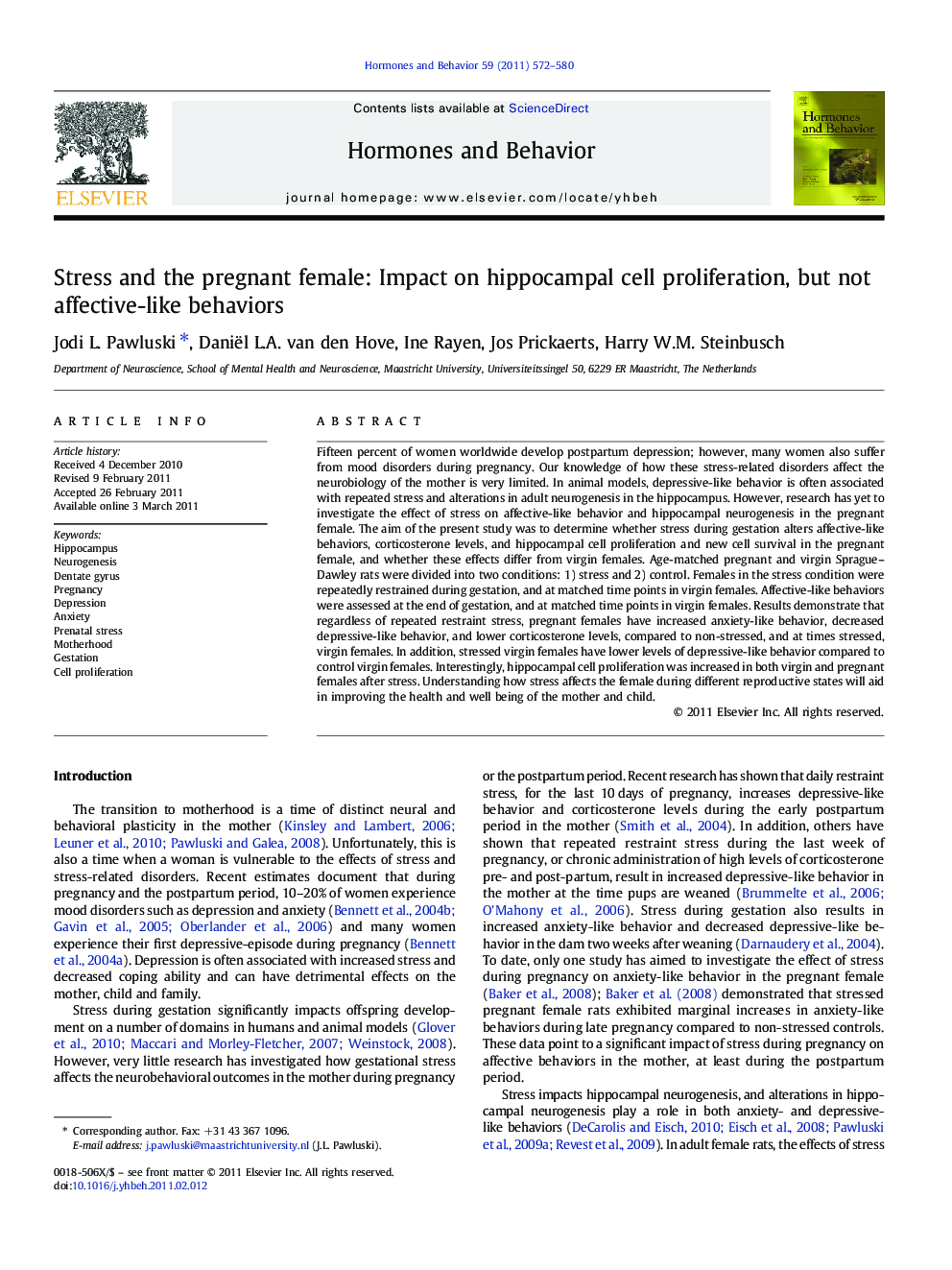| Article ID | Journal | Published Year | Pages | File Type |
|---|---|---|---|---|
| 323189 | Hormones and Behavior | 2011 | 9 Pages |
Fifteen percent of women worldwide develop postpartum depression; however, many women also suffer from mood disorders during pregnancy. Our knowledge of how these stress-related disorders affect the neurobiology of the mother is very limited. In animal models, depressive-like behavior is often associated with repeated stress and alterations in adult neurogenesis in the hippocampus. However, research has yet to investigate the effect of stress on affective-like behavior and hippocampal neurogenesis in the pregnant female. The aim of the present study was to determine whether stress during gestation alters affective-like behaviors, corticosterone levels, and hippocampal cell proliferation and new cell survival in the pregnant female, and whether these effects differ from virgin females. Age-matched pregnant and virgin Sprague–Dawley rats were divided into two conditions: 1) stress and 2) control. Females in the stress condition were repeatedly restrained during gestation, and at matched time points in virgin females. Affective-like behaviors were assessed at the end of gestation, and at matched time points in virgin females. Results demonstrate that regardless of repeated restraint stress, pregnant females have increased anxiety-like behavior, decreased depressive-like behavior, and lower corticosterone levels, compared to non-stressed, and at times stressed, virgin females. In addition, stressed virgin females have lower levels of depressive-like behavior compared to control virgin females. Interestingly, hippocampal cell proliferation was increased in both virgin and pregnant females after stress. Understanding how stress affects the female during different reproductive states will aid in improving the health and well being of the mother and child.
Research Highlights► Depressive-like behavior is decreased in pregnant and stressed virgin rats. ► Anxiety-like behavior is increased in pregnant female rats, regardless of stress exposure. ► Stress increases hippocampal cell proliferation in virgin and late pregnant females. ► Stress does not affect new cell survival in the hippocampus of pregnant and virgin females.
